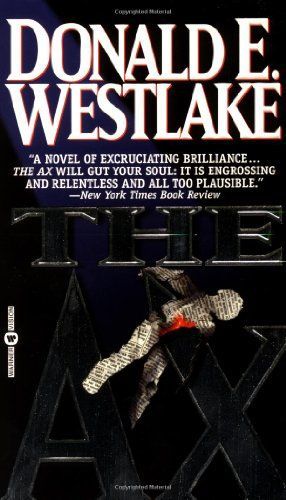
The Ax
Fro 25 years, Burke Devore has provided for his family and played by the rules. Until now. Downsized from his job, Devore is slipping away: from his wife, his family, and from all civilized norms of behavior. He wants his life back, and will do anything to get it. In this relentlessly fascinating novel, the masterful Westlake takes readers on a journey of obsession and outrage inside a quiet man's desperate world.
Reviews
Bryan Alexander@bryanalexander
Claudiu@claudiu
abhinav@bhnv
Gary Homewood@GaryHomewood